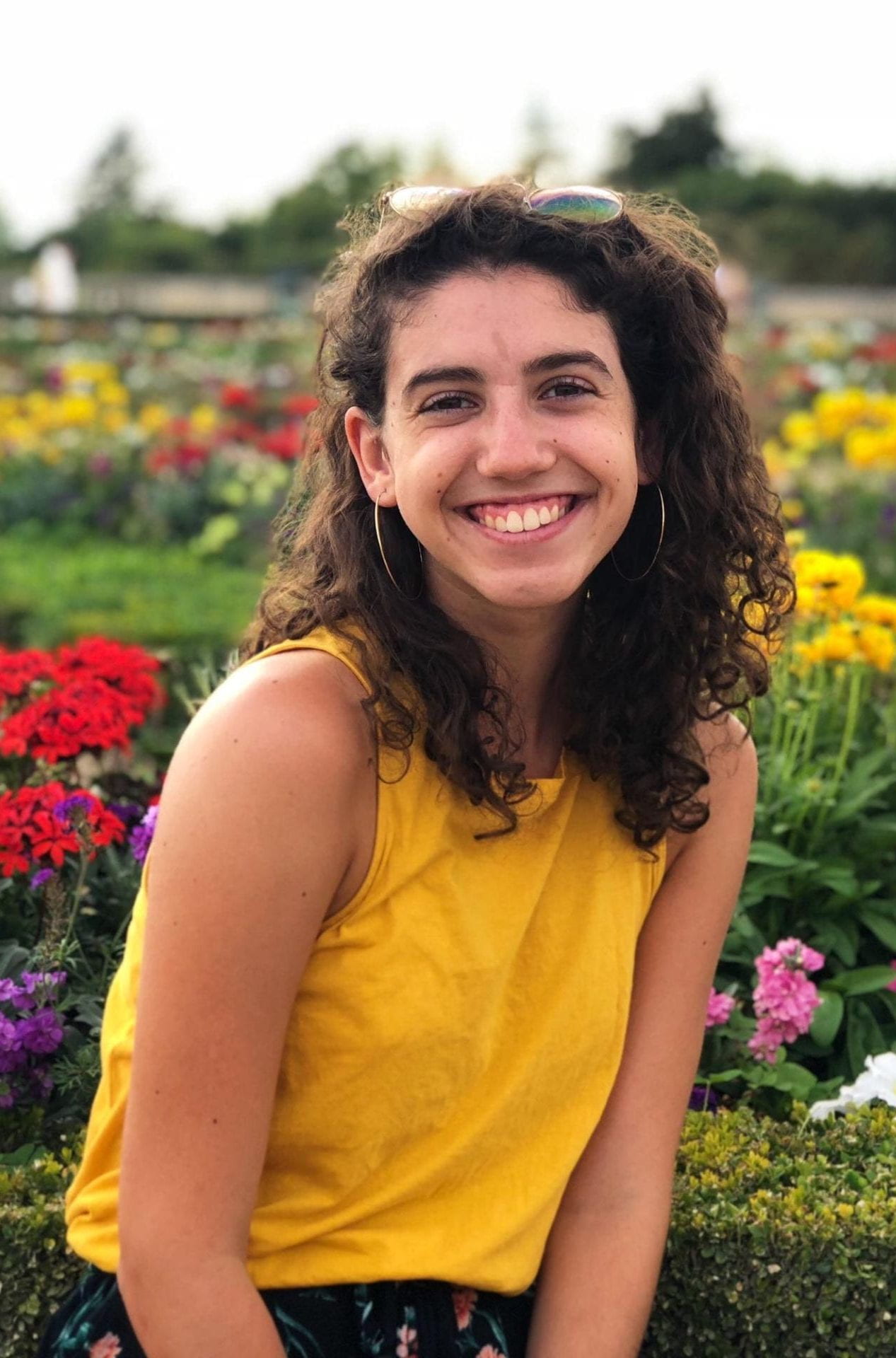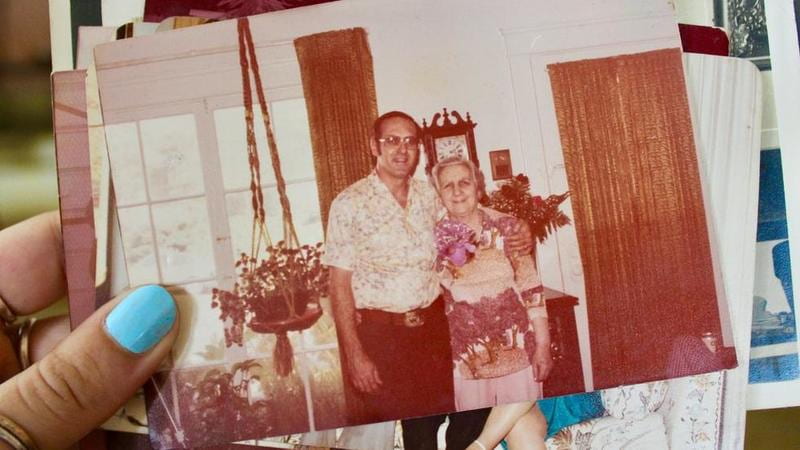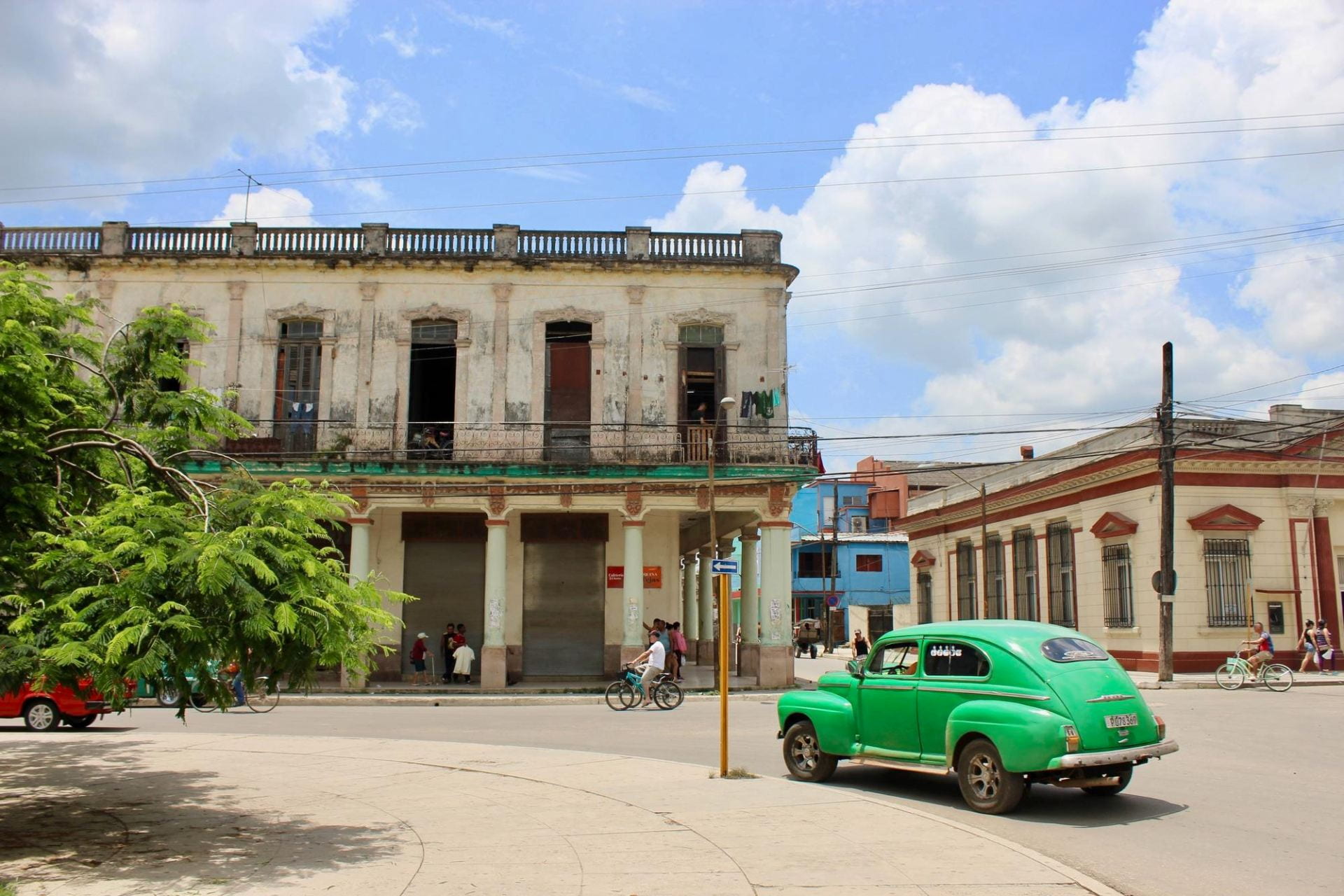
About the Author
Mis Memorias de Cuba
Ever since I was little, I was immensely proud of my Cuban heritage. My grandparents had immigrated to the U.S. in 1960 after the Revolution. Maybe it was because of a knowledge of all of their hardships and sacrifices, and gratitude for the life they had allowed me to live, but I felt it imperative to learn as much as I could about my Cubanness and to share that heritage proudly with the world. Their daughter, my mother, and my father, the son of Spanish immigrants, were committed to raising their children in a household deeply rooted in their respective cultures, so we grew up speaking Spanish before English, eating ropa vieja and tortilla de patatas, and visiting our family as often as we could.
We were able to visit Spain often and easily, but the same was not true for Cuba. For the majority of my life, Cuba was a country that I never thought I’d be able to visit, and so I desperately reached to try to know her through food, music, traditions and stories from my grandparents and their siblings. I longed for Cuba with this strange sort of nostalgia for something I’d never actually known, but which felt like an intrinsic part of me. I held onto the Cuba my grandparents spoke of—a sort of lost paradise that lived on in memory and belonged to the older generation.
My mother and I finally were able to visit Cuba in January 2016, an incredibly amazing and emotional trip, but one that was part of a very strict guided tour where we were not allowed to wander on our own to visit our grandparents’ hometown or really interact with Cuban people. So when I received funding in the spring of my junior year to pursue thesis research in Havana for six weeks, I was overwhelmed with gratitude and excitement to be able to visit Cuba once more, but in a way that would allow me to be more immersed in the country and culture, to get to really see Cuba beyond just the lens of tourism. Since Cuba had for so long felt like such an important part of who I am at my core, I expected to feel an instant sort of click or sense of belonging just by being in Cuba and being surrounded by its culture. However, while the language, music, and food all were familiar to me, Cuba felt more foreign to me than I had expected; I realized that was because the Cuba of my grandparents and of my imagining was very different from the Cuba that exists today. This is not to say that the Cuba held onto and imagined by older generations of Cubans or by Cuban-Americans is not real or valid, but rather, that it is of a different time, and that Cuba today is quite different.
Recognizing this difference rocked me a bit at first, but through my thesis research, which was focused on concepts of cultural identity, I was able to develop a better understanding of Cuba and its culture as they exist today. While just six weeks of living in Havana are not enough to fully understand Cuba and its people, as they are both quite complex, I was able to— for a little bit of time—try to understand and see Cuba through the eyes of some of its people. I came away with some main takeaways of what Cubanness, or cubanidad, might look like today.
One of the most visible things to me about Cuba was how diverse it is, not just in the sense that its population is diverse, but that the ways in which its people perceive/imagine Cuba and interact with their own sense of cubanidad are diverse as well. My six weeks in Havana were spent interviewing musicians who work in tourism about the relationship between music, culture and tourism, and they all had different ideas about what Cuban culture is and what it means to them. Though it’s not a particularly bold claim to say that a country is diverse and that one culture can mean different things to its people, it’s important when speaking about Cuba, which is (as many countries are) often prey to stereotypes which are then reinforced in the context of tourism. These stereotypes fail to accurately represent the diversity, history, and also progress of Cuba through time, which is something that many of the Cubans I spoke to wished the outside world saw more clearly. I was repeatedly told that Cuba is more than rum, tobacco and old pre-Revolution songs, that it is more than a country stuck in time; it is a growing and developing country with a rich history and a richer future.
I was also struck by the warmth and openness of the people that I met while in Cuba. One of the most incredible moments of my time in Cuba was when my mother visited me for the weekend and we were able to travel to my grandparents’ hometown, a town called Güines, an hour outside of Havana, and meet our family. Though we had never personally spoken to them before, and though my Cuban-American family had lost touch with them decades ago, my family in Cuba welcomed my mother and me into their homes with open arms, warm smiles and plenty of food. We spent the day with our relatives, and I went back to visit them on my own on my last day in Cuba, and they had cooked me a wonderful meal and scolded me for not telling them that I had been sick the week before. They apologized profusely for not being able to make arroz con leche as there was no milk in the store that week, and they repeated over and over that though they had little, what they had was mine. They gave me a yellow bracelet since they had observed that I wear many bracelets on my arm— it is now one of the most special things I own.
I was lucky enough to find such warmth and generosity in many other places in Cuba, not just from family but from new friends and even strangers. A warm and generous woman named Cary became like my mother in Cuba and had me over at her house at least three times a week to watch telenovelas with her and her mother, Marta. Her sister, Luli, taught me how to dance salsa in her living room and talked with me for hours about her life and her children.
I once even met a woman on the street named Marlen, who came up to me, noticing that I was alone and lost, and helped me figure out what bus to take home, rode it with me, and made sure that I texted her to let her know I was home safe. Her eyeglasses were broken and held together by a paperclip, but she refused to let me pay for my own bus fare. I found all around me in Cuba a deep desire to share and connect with other people—even if there was not much to share, people and relationships came first.
Lastly, the Cuban people I interacted with and interviewed demonstrated an eagerness to share, not just friendship or food, but their stories and their lives—an eagerness to know the world and be known by it. The musicians I interviewed were excited that someone was writing about them, even if just in a thesis that only a few people would read. They were used to lives of playing in the backs of restaurants as tourists ate and of difficulty accessing the outside world through travel or online communication, which are both hard to come by in Cuba. This desire for human connection and knowledge is an intrinsically human one, but one that has been complicated in the context of Cuba as it has been cut off from much of the world for so many years. From the musicians I interviewed to friends to taxi drivers, the majority of the people that I met in Cuba were incredibly open and wanted to have their stories told. I think that communicating the humanity of Cuba and of Cuban people is very important because the country, especially from a U.S. perspective, is often spoken about just as a political entity and thus, dehumanized. Many of the questions people ask me about my trip revolve around Cuba’s politics and the Revolution, while both are extremely important to understand when trying to know Cuba today, there is so much more to the country and its culture than just its politics.
Though Cuba might not have instantly felt like home to me, it ended up developing into one because of the generosity, warmth and openness shown to me by many of the people that I met. What stuck with me most from my time in Cuba was its incredible people, who helped me to better understand a country that has meant so much to me my whole life, which in turn has made me better understand my own cubanidad, and how my own Cubanness can relate to and differ from that of Cubans on the island. My time in Cuba instilled a deeper love for Cuban people than I had thought possible, even more pride in my heritage, and left me with a strong desire to share the stories of the people that I met, their hardships, their joys and their passions. I think the best way to summarize my experience in Cuba is through a quote from my wonderful friend Cary:
“Personas vienen a Cuba y piensan que saben como es y esperan ver una cosa, pero Cuba te sorprende. Te puede asustar con su vivacidad, y te enamora”.
– Cary
“People come to Cuba and they think they know what it’s like and they expect a certain thing, but Cuba surprises you. It can scare you with its vivaciousness, and it makes you fall in love.”
– Cary
More Student Views
Oppression Disguised as Aid: The Colonial Legacy Behind Haiti’s Struggling Healthcare System
In rural communities in the United States, it takes an average of 34 minutes to reach the nearest hospital. In rural Haiti, the average is two hours. Infectious diseases including tuberculosis, cholera and HIV/AIDS go untreated due to the lack of basic healthcare infrastructure and the violence disrupting the provision of health services.
“Yoltajtol. A Word from the Heart”: The Nahuatl Worldview Comes to Harvard
On February 28th, the Moses Mesoamerican Archive and Research Project held the inaugural Nahuatl Workshop “Yoltajtol, A Word from the Heart.” The workshop had the twofold goal of offering an introduction to the Nahuatl language and showing to the participants that Nahuatl is a constitutive part of present-day indigenous peoples’ worldview.
CPR Ambassador Journey
English + Español
One of the simplest yet most effective ways of saving a life in the case of sudden cardiac arrest is cardiopulmonary resuscitation (CPR). It’s an accessible procedure to be trained on, as almost anyone of any age can learn it. Knowing this, and that performing CPR right after cardiac arrest increases survival chances two to three times, why hasn’t everyone been trained on CPR at some point in their lives? (American Heart Association).








